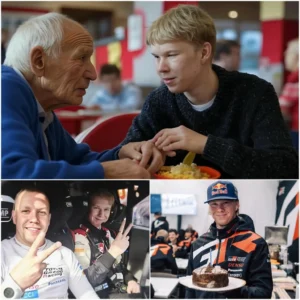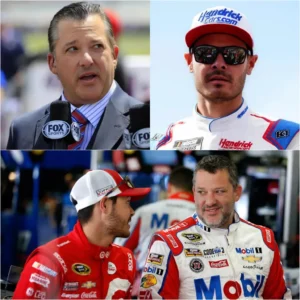In the world of Formula 1, performance fluctuations are a common occurrence. Teams and drivers alike constantly adapt to evolving regulations, technological advancements, and the fierce competition that characterizes the sport. One of the most notable teams in recent history, Mercedes-AMG Petronas Formula One Team, has faced significant challenges in maintaining its dominance in the F1 arena. Lewis Hamilton, one of the most successful drivers in the sport’s history, recently addressed the decline in Mercedes F1’s performance, stating, “I don’t think it has changed.” In this article, we delve into Hamilton’s insights, explore the factors contributing to the team’s struggles, and consider the potential for a resurgence.

Mercedes has been a dominant force in Formula 1 for the past decade, securing multiple Constructors’ and Drivers’ Championships. However, recent seasons have seen a noticeable decline in their performance. This shift has prompted questions about the team’s strategy, engineering, and overall approach to racing.
Hamilton’s statement reflects a deep understanding of the intricacies of the sport. His belief that the core aspects of Mercedes’ performance have not fundamentally changed suggests that the issues may not lie within the team itself, but rather in the competitive landscape of F1. The rise of rival teams, particularly Red Bull Racing and Ferrari, has intensified the battle for supremacy, making it increasingly difficult for Mercedes to maintain its previous level of excellence.
1. Regulation Changes: Formula 1 is no stranger to rule changes aimed at leveling the playing field. The introduction of new aerodynamic regulations, power unit specifications, and tire compounds can significantly impact a team’s performance. Mercedes has faced challenges adapting to these changes, while rivals have capitalized on the opportunity to close the gap.
2. Rivalry with Red Bull Racing: Red Bull Racing’s resurgence has been a game-changer in recent seasons. With their innovative design approach and talented driver lineup, they have consistently challenged Mercedes for race victories. Hamilton acknowledges the intensity of this rivalry, noting that Red Bull’s progress has made it harder for Mercedes to secure the results they once enjoyed.
3. Development Strategy: Hamilton’s comments also highlight the importance of a robust development strategy. While Mercedes has historically excelled in engineering and innovation, recent seasons have seen them struggle to deliver updates that translate into performance gains on the track. As rivals continue to develop their cars rapidly, Mercedes must refine its approach to stay competitive.

4. Team Dynamics: The internal dynamics of a racing team play a crucial role in performance. Hamilton’s long-standing partnership with Mercedes has fostered a culture of collaboration and excellence. However, as challenges mount, maintaining team morale and cohesion becomes increasingly important. Hamilton’s perspective suggests that the team’s spirit remains intact, but external pressures may be influencing performance outcomes.
Lewis Hamilton’s role as a leader within the Mercedes team cannot be understated. His experience and determination have been pivotal in navigating the challenges faced by the team. Despite the current struggles, Hamilton’s unwavering commitment to excellence serves as an inspiration for both his teammates and fans alike.
In recent interviews, Hamilton has emphasized the importance of resilience. He believes that every setback presents an opportunity for growth and improvement. This mindset is crucial not only for Hamilton as a driver but also for the entire Mercedes organization as they work to reclaim their position at the forefront of Formula 1.
While the challenges facing Mercedes are significant, the team’s history of innovation and success cannot be overlooked. Hamilton’s comments indicate a belief that the core strengths of the team remain intact. To regain their competitive edge, Mercedes must focus on several key areas:
1. Enhanced Development Programs: Investing in research and development to produce more effective updates will be crucial. This includes analyzing data from recent races, identifying performance gaps, and implementing solutions that can quickly translate into on-track results.
2. Strengthening Team Collaboration: Maintaining a cohesive team dynamic is essential in high-pressure situations. Open communication and collaboration among engineers, drivers, and management will foster a culture of innovation and adaptability.

3. Strategic Partnerships: Collaborating with external partners, whether for technological advancements or data analysis, can provide fresh perspectives and insights. Engaging with experts in various fields may lead to breakthroughs that can enhance performance.
4. Driver Development: Hamilton’s leadership will be vital in nurturing the next generation of drivers within the Mercedes team. Fostering talent and providing mentorship will ensure that the team remains competitive in the long term.
Lewis Hamilton’s reflections on the decline in Mercedes F1’s performance reveal a complex interplay of factors affecting the team’s trajectory. While challenges persist, Hamilton’s belief that the fundamental aspects of the team have not changed suggests that there is still potential for resurgence. With a focus on innovation, collaboration, and resilience, Mercedes can work towards regaining its competitive edge in Formula 1.
As fans eagerly await the next chapter in Mercedes’ journey, Hamilton’s unwavering commitment to excellence and leadership will undoubtedly play a crucial role in shaping the team’s future. The road ahead may be challenging, but with determination and the right strategies in place, Mercedes can rise once more to the pinnacle of motorsport.






